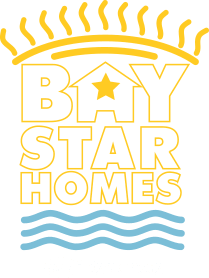GOOD TO KNOW
- Illegal dumping, also called illicit discharge, occurs when anything other than natural precipitation enters the storm drain system.
- The stormwater system takes rain water away from homes and streets through the storm drain openings you see on your neighborhood curb or the grates in the pavement. Unlike the wastewater that comes from inside your home, stormwater is not treated. Anything that enters storm drains is carried to local waterways.
- Some common examples of illegal dumping in storm drains include:
- yard waste like grass clippings and leaves
- chlorinated swimming pool water
- trash/litter
- hazardous materials such as lawn chemicals, paint, oil, etc.
- Soap and other cleaners may contain phosphorus which are particularly worrisome because they fuel the growth of aquatic algae in our local waterways. Too much algae creates dead zones that lack the water quality and oxygen needed by fish and other aquatic life.
- Storm drains can become clogged by illegal dumping, contributing to neighborhood flooding during rainfall events.
- Just remember – only rain down the storm drain!
GOOD TO DO
 Cleanup
Cleanup
- Use dry methods such as sweeping, vacuuming or absorbents to clean hard surfaces like sidewalks, driveways, curbs and gutters.
- Use wet cleaning methods – like pressure washing or car washing – only when adequate precautions are taken to prevent the wash water from entering the storm drain system.
- Pick up litter to prevent it from entering the storm drains.
- Always pick up after your pets.
 Disposal
Disposal
- Dispose of small amounts of dirty wash water by dumping it into household drains or into grassy areas that can absorb the water without producing any runoff.
- Never blow, rake, sweep, hose or otherwise dispose of leaves or grass clippings into the storm drain.
- Use your city or county’s household hazardous waste program to safely dispose of all paints, oils, chemicals, etc.
 Maintenance & Storage
Maintenance & Storage
- Consider using natural/green cleaning and lawn care products whenever possible.
- Use fertilizers and chemical pesticides sparingly and only when and where they are necessary. Don’t apply lawn chemicals near curbs, gutters, streets and driveways.
- Store all chemicals and hazardous materials in covered areas and off the ground to prevent contact with rainfall or floodwaters.
- Keep lids to trash and recycling carts closed at all times to prevent trash from blowing out and into the storm drains.
- Perform routine vehicle maintenance to find and fix fluid leaks.
- Properly maintain septic systems to prevent leaks.
 Report It
Report It
- Contact your local stormwater department immediately if you see the following:
- Someone dumping any substance (leaves, grass clippings, chemicals, paint, trash, etc.) into a storm drain.
- Water flowing in a storm drain or ditch when it has not rained in 72 hours.
- A storm drain, ditch, stormwater pond, etc. with particularly smelly water, an oily sheen, or obvious discoloration.
 For Businesses:
For Businesses:
- Businesses should inspect all outdoor waste receptacles including dumpsters, recycling containers and oil collection containers for damage and ensure there are no leaks. Lids should be kept closed at all times to prevent contact with rainfall or floodwaters
- Businesses should provide customers with adequate trash and cigarette litter receptacles to discourage littering and perform daily litter pickups on their property.
- Any water generated from business activities may NOT be dumped into the storm drain system or any waterway.
- If your business generates wastewater of any kind, contact HRSD for instructions and approval on proper disposal.
- Wash water and rinse water may be directed to an approved sanitary sewer or landscaped area, with permission from the property owner. However, the landscaped areas must be capable of absorbing the water and should not cause any stormwater runoff, pollution or erosion.

